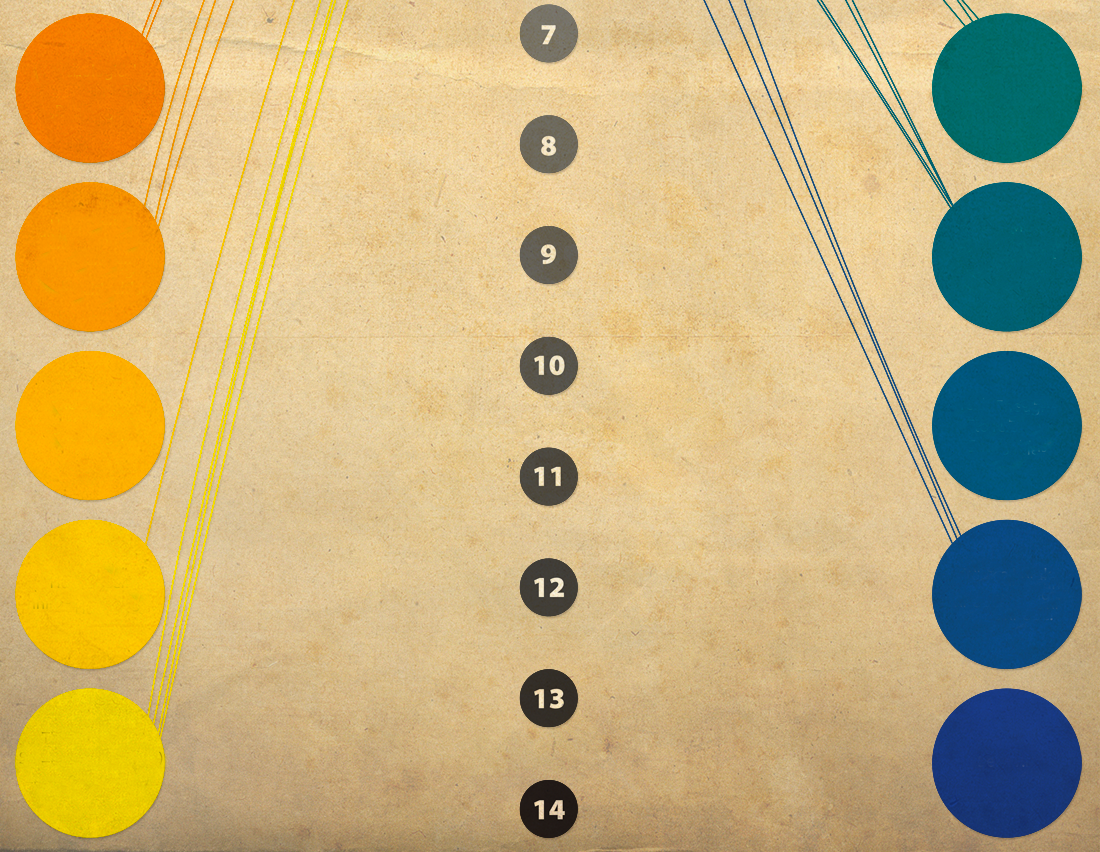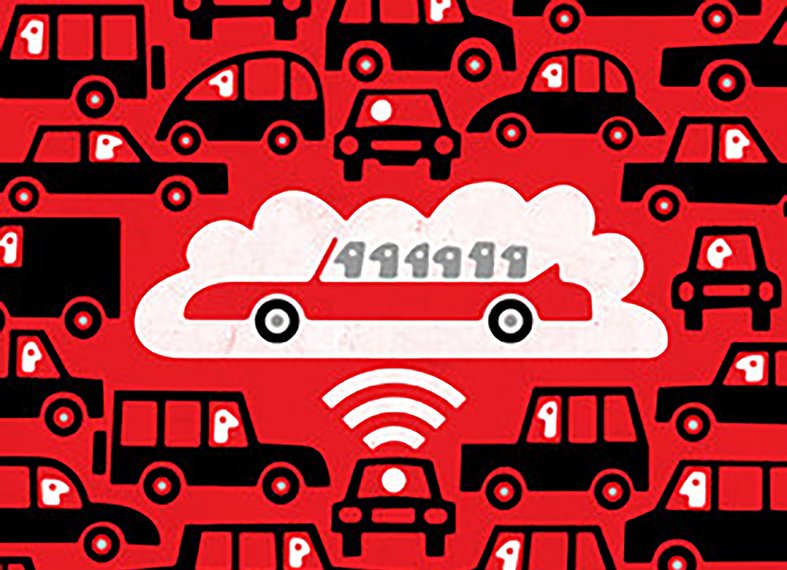Let´s imagine three digital urbanites: Sam, Luke and Vicky. Vicky is an Australian based in New York whereas Sam and Luke live in London. Sam and Luke are travelling to San Francisco, and need to find a place to stay for a couple of weeks. They don’t want to go to an hotel looking all the same. They would rather find a cosy flat in the center, so they decide to check online the available possibilities offered by the site Airbnb. They settle for the creatively decorated studio-flat of Vicky, as they are drawn by its beautiful pictures displayed online.
Vicky is a thirty-something fashion designer running her business from home, they read in her profile. Her studio flat is available because she is not in town for the whole month. She will be traveling to Paris. Vicky´s reason to travel to Paris is quite an interesting one. She will be meeting a group of women that started a business: rentez-vous.
Their aim is to be the airbnb of fashion design. She discovered Rentez-Vous while surfing the net. The company, considers itself to be the Airbnb of fashion, the first peer-to-peer and designers fashion rental marketplace, that connects women through their wardrobe. They entitle themselves as pioneers of collaborative fashion, a revolutionary vision of the fashion industry, based on collaborative consumption and co-creation. Vicky wants to study their business model. She knows and sometimes uses poshmark. She plans to launch some kind of business soon, based on the strategies of collaborative economy. She is used to collaborative economy and is quite fond of ordering food from Munchery when she has friends over.
Sam sends Vicky an email via the mobile app of airbnb and she accepts. This is not the first time she receives guests at her house, so she has no problem trusting these guys coming to the pacific coast. They also have a great profile online: half a dozen people has reviewed them as a nice couple, tidy, respectful and honest, by giving them 5 stars. For the past couple of years, they´ve been using airbnb regularly, whenever they travel.
screenshot of website MuncherySam, Luke and Vicky, are three digital new urbanites. They don´t have a car, as they rather prefer to commute using the tube or metro. They own the most advanced mobile tablets, as they exchange their old models regularly selling them on ebay. During weekends, they bike to attend car boot sales, or to go shopping at the local organic stores or farmer´s market. Once in a while, they trade their spare stuff using freecycle or streetbank.
They also use Zipcar, when going on a trip to the countryside. Fond of art and photography, they take pictures with Instagram, posting them on Facebook and on their personal blogs and social media business pages. These guys are all part of generation C, a generation that regardless of the age group, praises connectedness as one of their main values.
The companies and websites they’re part of Rentez-vous, Airbnb or freecycle, are all examples of a new economic model, that has been germinating for the past decade. Quietly, it is disrupting businesses and the top down economic environment that we used to live in.
It has been called in many different ways: collaborative economy, sharing economy, relationship economy, the access economy, the peer-to-peer economy. In this article, I will call it “Sharing Economy” as an umbrella term that aggregates all the other possible denominations.
What is Sharing Economy
Image Source: cover of book Happy City, by Charles MontgomeryHow to define the sharing economy? Sharing Economy is a new economic model based on ‘access to’ rather than ‘ownership of’ physical and human assets like time, space and skills”. It includes the shared creation, production, distribution, trade and consumption of goods and services by different people and organizations.
These systems take a variety of forms but rely on the web to distribute the information about the goods and services being shared and reused. The core of the sharing economy is the idea that people are willing to rent or share things from each other. It encompasses a wide range of structures spanning for-profit, non-profit, barter and co-operative structures.
Its paramount example is Airbnb. Since the website launch in 2008 circa 9 millions people have used it. Airbnb that wisely uses arty creative content marketing, and a wonderfully designed website, that relies on visual storytelling to attract potential guests.
Airbnb is the most prominent example of the “sharing economy” in which people rent or borrow beds, cars, boats and other assets directly from each other, coordinated via the Internet.
Screenshot of website of airbnbThe sharing economy is certainly blooming. One of the reasons of its success might be smartphones explosive sales increase. Companies based on the sharing economy principles, have developed various smartphones´s apps with GPS and efficient social networks that let people easily connect and share stuff both internationally, and in their neighborhoods.
Easy online payment systems are able to handle the billing. According to Rachel Botsman, it is estimated that the sharing economy is a $110 billion-plus market.
Little History of Sharing Economy
Image Source: National GeographicsThe sharing economy represents a late development of a much broader series of shifts happening in society, dating back to the Industrial Revolution, and more recently, due to the invention of the Internet. 15 years ago, collaborative consumption pioneers such as eBay and Craigslist launched, being able to monetize and grow, by using the Internet to “match millions of haves with millions of wants” in a quick and effective way.
The Solidary Economy Infographic by Ethan Miller and JED Collective
Peer to peer (P2P) commerce evolved step by step, taking advantage of the increasingly sophisticated technological platforms, that enabled its redistribution. One of its pioneers was the company Zipcar. The early P2P models of commerce, prepared society to what would come afterwards, as people became more drawn to relate to their material possessions in a different way and more willing to share their valuable possessions, to open their houses to strangers, and to sell and give away the stuff they didn’t need any more.
The term sharing economy or collaborative economy, started to resonate during the mid-2000s, as new business structures emerged inspired by the possibilities of social technologies. It is very important to refer how there is a strong ideology behind the sharing economy that challenges the type of society we inherited and live in, traditionally based in mass consumerism. Wikipedia for example refers that one of the earliest inspirations for The Sharing Economy was the publication of the article: tragedy of the commons in 1968 by ecologist Garrett Hardin. Garrett´s article formulated the idea that when we all act solely in our self-interest, we deplete the shared resources we need for our own quality of life. During the mid-2000s widespread debate on global warming and other natural catastrophes raised enough awareness on the necessity of protecting the global common resources such as atmosphere, ocean, rivers, fish stocks, national parks. Another pioneer and source of inspiration was Harvard law professor, Yochai Benkler, one of the first proponents of open source software. He suggested that network technology could mitigate the tragedy of the commons, through what he called ‘commons-based peer production’.
Rachel Botsman, a writer and thought leader, was one of the first to study the sharing economy. She published in 2010 her influential book What’s Mine is Yours: How Collaborative Consumption Is Changing The Way We Live and gave an interesting public speech in TEDx Sydney conference in 2010. In 2011 Botsman described Collaborative Consumption as a social revolution that would enable people to “create value out of shared and open resources in ways that balance personal self-interest with the good of the larger community.” Another issue tackled by Botsman is the concept of trust. She proposed that trust could be considered as the currency of a new collaborative economy, asserting that “reputation capital creates a massive positive disruption in who has power, influence and trust.”
The Sharing Economy and Generation C
The ones behind the companies that form part of the sharing economy, come from a particular generation that is exceptionally tech-savvy. They are part of what marketer Brian Solis entitles as the generation “C” that stands for connected. They are used to blog and read their news on twitter. They are on Facebook, snapchat, whattsapp and instagram. They play online games, but use as well apps to meditate. They attend local Yoga classes, shop in organic stores, and buy/sell stuff online. In sum, they can’t imagine a world without connectivity.
It is evident that a strong dose of idealism and a new set of societal values are behind the sharing economy. As people are becoming less interested in consuming and more interested in having experiences, in relating to each other and in feeling a sense of connectedness and community, they begin to feel that they are part of something bigger then their individual selves. Some say that “we are moving from an asset heavy generation to an “asset light” life style. Which means moving from a world organized around ownership, to a world organized around access to assets. These trends are spurring massive innovation, creating new market places and redefining the nature of business.
How does the corporate world relate to these new types of citizens, that besides being well informed have a whole new set of values as they are culturally set up to borrow, rent and share ? Increasingly you hear gigantic corporations embracing a new vocabulary of words such as meaning, openness, community, vulnerability, taking responsability. Jerry Michalski, who is the founder of Rex, a cohort of corporate leaders working together to navigate what he calls as “the massive wave of change breaking over society” writes and speaks regularly about the “relationship economy” that he mentions as being the same as sharing economy. Michalski focus his attention on the process of relationship. He says: “Many things right now are about relationships, trust, authentic relationships, whereas it is between customers and companies, or between citizens and their governments”.
One thing is certain. The sharing economy is no passing trend, as it is definitely here to stay.
Guide To The Sharing Economy – part two

Maria Fonseca is the Editor and Infographic Artist for IntelligentHQ. She is also a thought leader writing about social innovation, sharing economy, social business, and the commons. Aside her work for IntelligentHQ, Maria Fonseca is a visual artist and filmmaker that has exhibited widely in international events such as Manifesta 5, Sao Paulo Biennial, Photo Espana, Moderna Museet in Stockholm, Joshibi University and many others. She concluded her PhD on essayistic filmmaking , taken at University of Westminster in London and is preparing her post doc that will explore the links between creativity and the sharing economy.



























